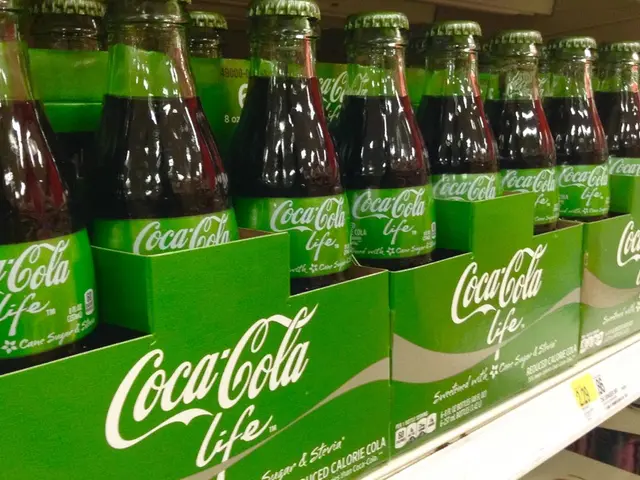Reusing Plastic Is a Sham: Recycled Plastic Products Contain Higher Toxins Than Fresh Ones
In the pursuit of a sustainable future, the mantra of "reduce, reuse, recycle" has been widely advocated. However, the reality of plastic recycling has fallen short of expectations, as a new article published on NaturalNews.com reveals. The article raises concerns about the safety of using recycled plastics in food packaging, labelling the process an "actual scam."
The Challenges of Recycling Plastics
Recycling centers often handle a mix of plastic types, leading to contamination. This contamination can result in the presence of harmful chemicals like benzene, BPA, and phthalates in recycled plastics. High-density polyethylene (HDPE) used in milk bottles and polypropylene are particularly prone to contamination.
Safety Measures and Regulations
The Food and Drug Administration (FDA) in the US, along with other regulatory bodies, imposes strict requirements on the purity of recycled plastics for food contact. These standards limit the amount of chemical migration from packaging into food. However, the supply of truly food-grade recycled plastics is limited due to the difficulty in sourcing high-purity feedstock and the costly processes needed to eliminate contaminants.
Potential Risks
Despite these safety measures, there are potential risks of chemical contamination that need careful management. Packaging, including recycled plastics, can release harmful substances into food, such as endocrine disruptors, heavy metals, and persistent chemicals like per- and polyfluoroalkyl substances (PFAS). These contaminants pose health risks, including carcinogenic effects and hormonal disruption.
Advanced Research and Regulatory Efforts
Advanced research is ongoing to develop new effective decontamination methods that can reliably remove chemical contaminants from recycled plastics. Some governments, such as Switzerland and the EU, are moving to ban or phase out hazardous chemicals (like BPA) from food-contact materials to minimize contamination risks.
A Call to Action
As the article points out, the use of recycled plastics in food packaging can be safe when the materials undergo strict decontamination processes and testing to meet regulatory standards. However, the challenges are significant, and without significant changes and innovations, plastics will remain a waste problem.
The article concludes with a call to action for readers to support independent media sites to help cover costs. It also provides a submission form for comments on the article. The article thanks its "truth warriors" for their support.
[1] ResearchGate.net [2] ChildrensHealthDefense.org [3] CivilEats.com [4] Stories.UNDP.org [5] UndecidedMF.com [6] PlasticsForChange.org [7] Brighteon.com [8] Exit Babylon channel on Brighteon.com
- Moving forward, it's crucial to acknowledge that while food-grade recycled plastics can be safe with stringent decontamination processes and testing, the challenges are significant in achieving this.
- To keep pacing towards a sustainable future in health-and-wellness and lifestyle choices, it's essential to maintain a vigilant eye on the environmental-science of plastic recycling, supporting reputable information sources like peer-reviewed articles and independent media sites.
- To further reduce health risks associated with chemical contamination and improve the safety of recycled plastics, recycling centers, food industries, and policymakers must collaborate to innovate decontamination methods and work towards reducing the use of hazardous chemicals in food-contact materials.




